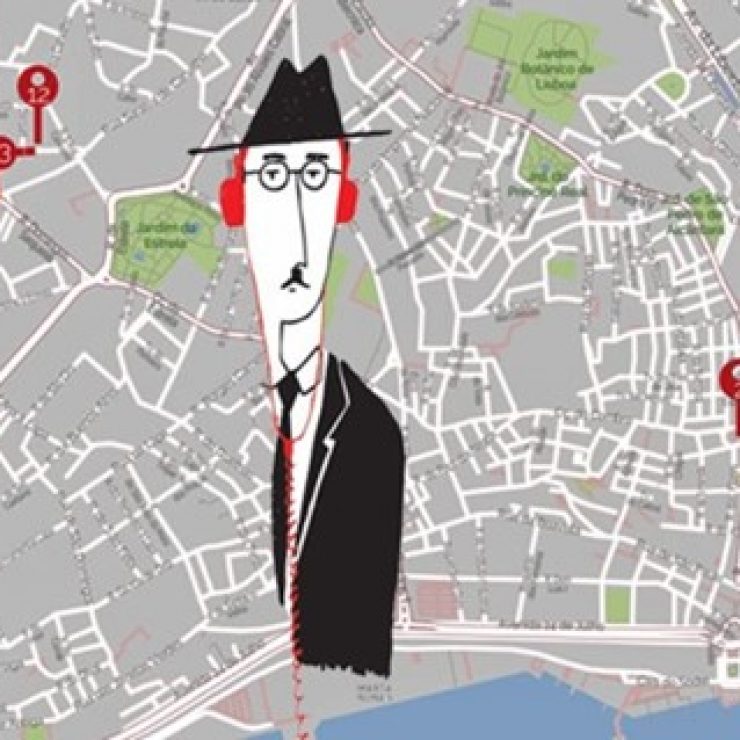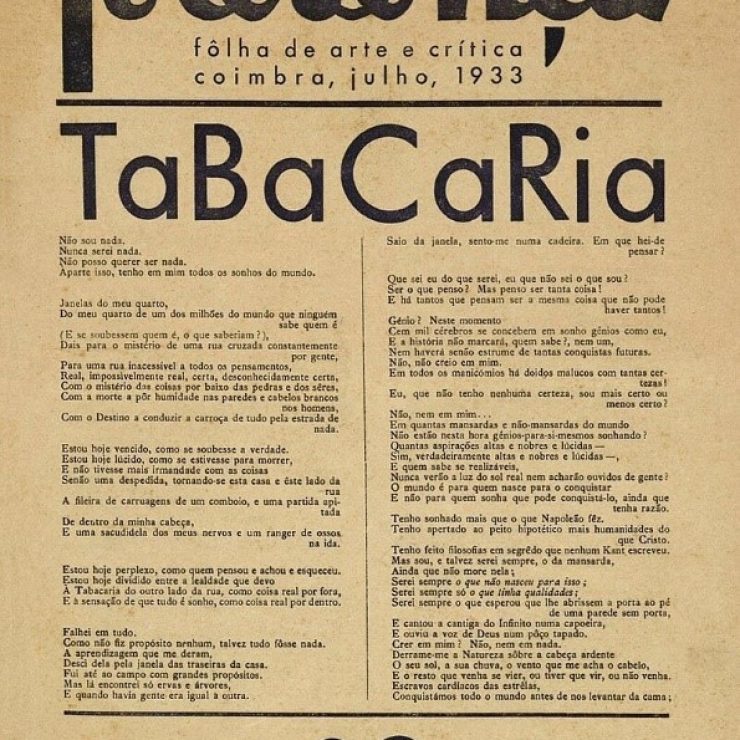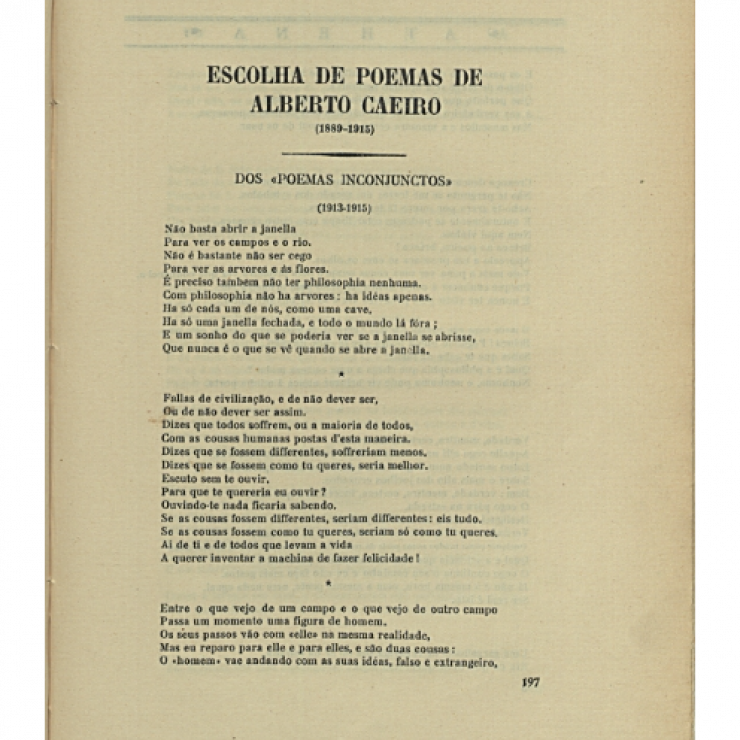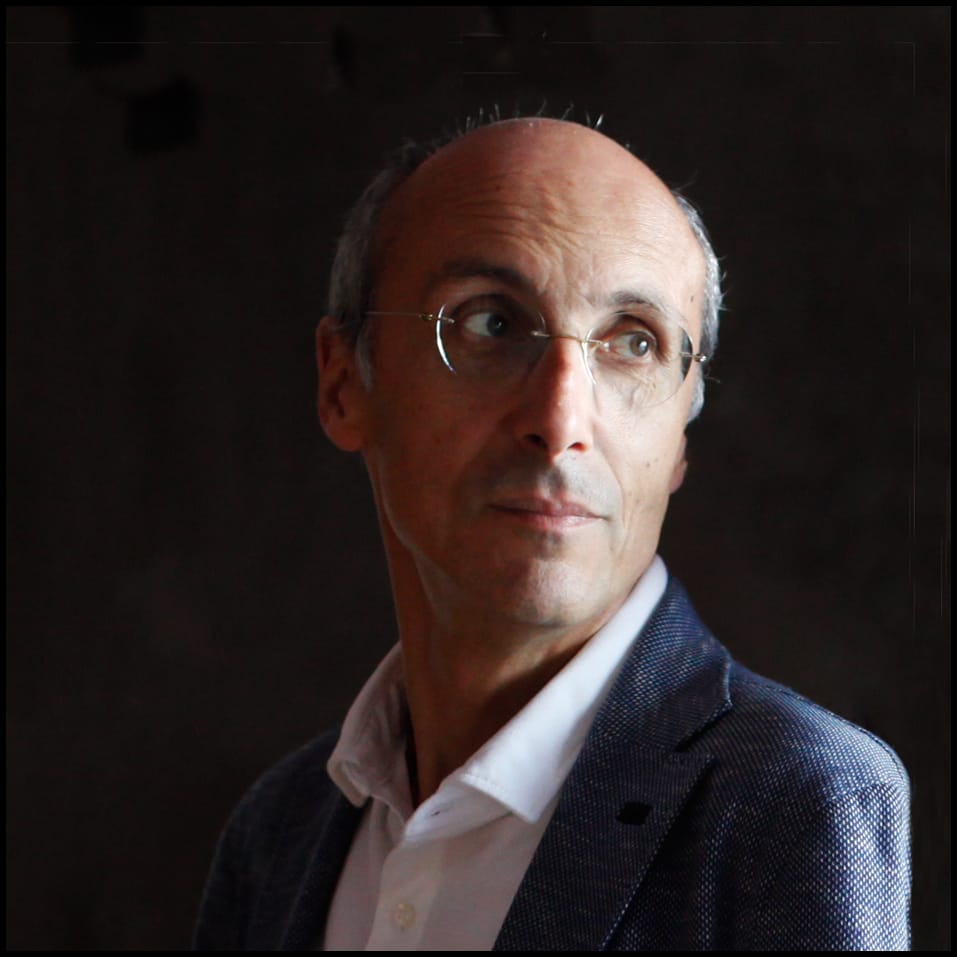
Paulo Borges is one of the Portuguese philosophers who, in the 21st century, has paid more attention to the work of Fernando Pessoa, in order to probe into and interpret the deep, labyrinthine and surprising thought of one of the most universal Portuguese writers. Paulo Borges has dedicated nine books to Pessoa, some translated into other languages, as well as contributing to dozens of conferences, including one at the Lisboa Pessoa Hotel, entitled «Life as a Dream: Rereading The Book of Disquiet in light of “lucid dreaming” and “dream yoga”». On this, as well as on other occasions, the thinker put forward an interpretation of Pessoa´s work through comparisons with the great universal philosophical and spiritual traditions, namely, in this case, Buddhism and yoga.
A philosophy professor at the University of Lisbon, where he coordinates the Centre of Portuguese Thinking and Lusophone Culture, Paulo Borges is also a poet, a novelist, and both a founder and a member of various philosophical, ethical and ecological associations and organizations. He has dedicated himself to these areas, among others, in an unceasing search and sharing of knowledge and wisdom, at various levels and in different spheres of society, which makes him a unique figure and an original voice in the Portuguese cultural scene. We had the pleasure of sitting down with him after his lecture at the Lisbon Pessoa Hotel, in order to take a deeper look at some issues about Pessoa in this brief but incisive interview, for which we thank him very much.
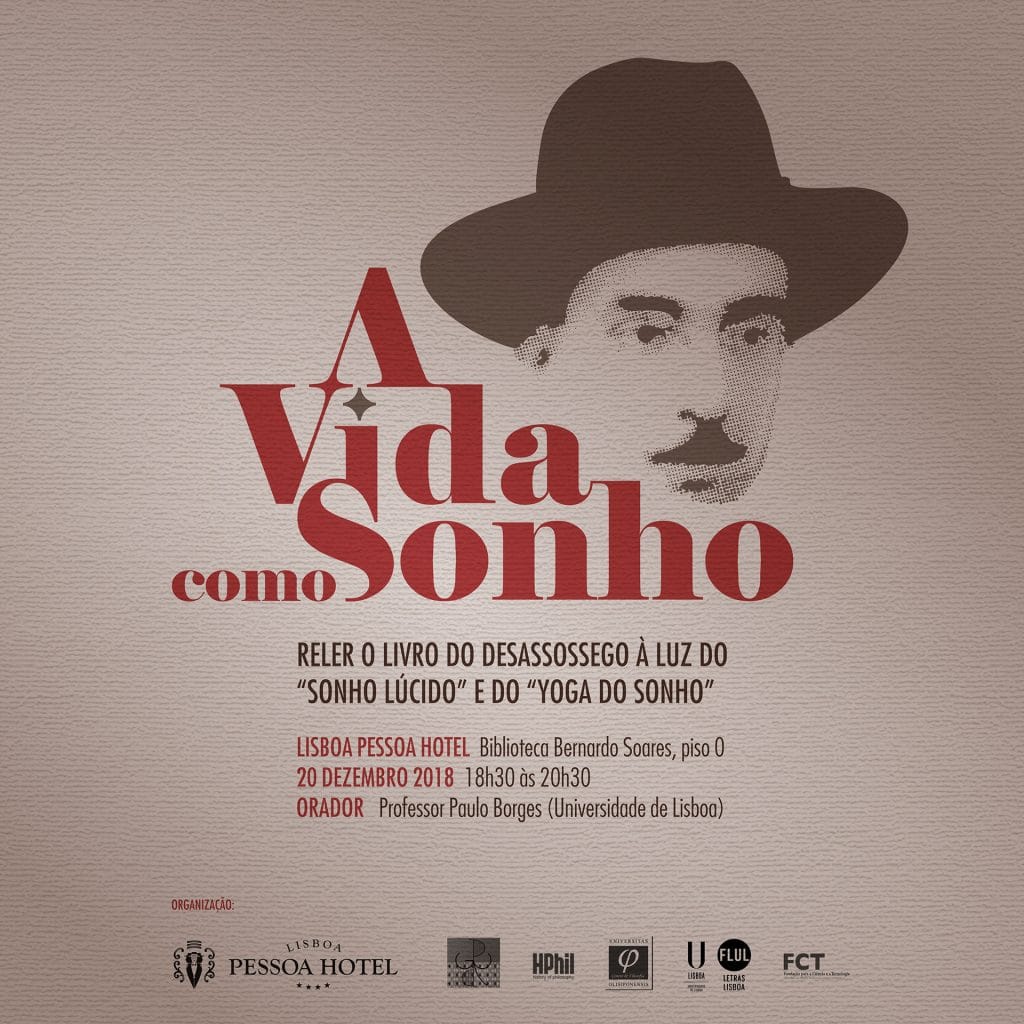
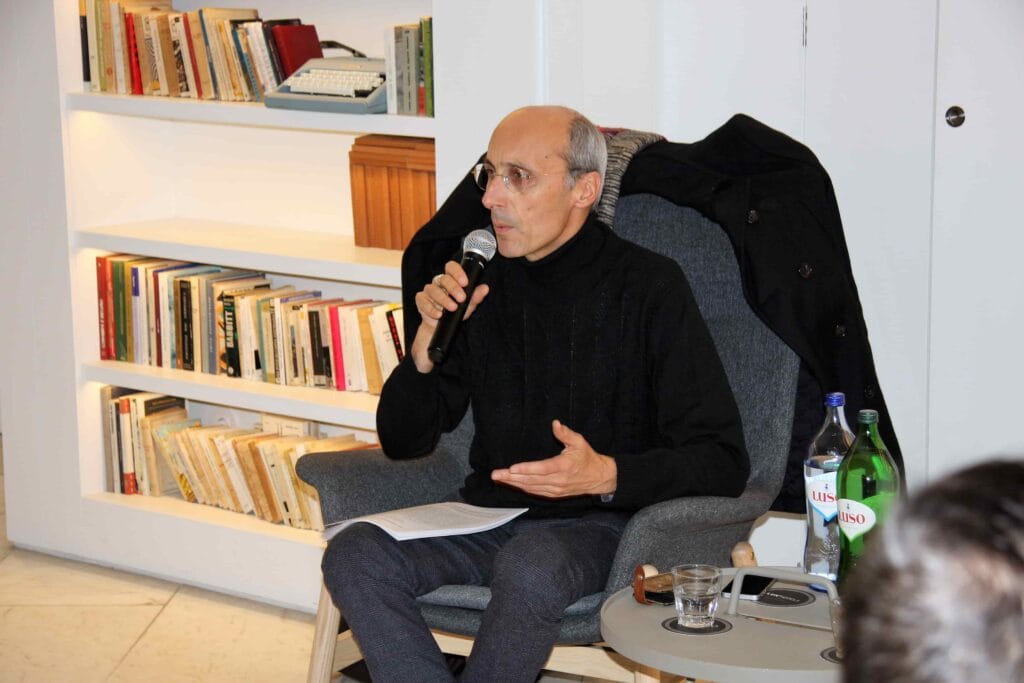
Professor Paulo Borges, in your intellectual and philosophical activity, you have been working, among other topics, on the theme of “dreaming” in Fernando Pessoa´s work. Can you briefly tell us what your approach to this fascinating theme in Pessoa´s work and thought is?
Paulo Borges: “One of the most characteristic themes of Pessoa´s work is the experience of life, of the world and of reality as an illusion or insubstantial dream, as emphasized in Bernardo Soares’ Book of Disquiet. The theme has deep roots in the western literary tradition (Pindar, Cervantes, Shakespeare, Calderón de la Barca …), in parallel to its rejection of the dominant philosophical tradition. This, contrary to Indian thought, seeks to secure the reality of things to make science and technology possible, rejecting the idea of the world as the work of an illusionist or deceptive God, as in Plato and Descartes. The theme is already present in indigenous cultures, where a primordial time, the “Dream Time”, as in the Australian aboriginal traditions, acts as a transition from chaos to cosmos. In this time everything is possible, as the forms of beings and things have not yet been defined, everything being in metamorphosis. This contrasts with Plato and Descartes, but converges with the Western poetic-literary tradition and with Schopenhauer and Nietzsche, who see human knowledge and life as anthropomorphic “illusion” and “waking dream”. Pessoa subscribes to this dissident line, assuming the dream or the illusion as the essence of reality. What I am trying to show, however, is that Pessoa subscribes even more significantly, in spite of some differences, to an Indo-Tibetan tradition, which explores the dreamlike possibilities for spiritual knowledge and liberation in depth, while the experience of Bernardo Soares implicitly engages with one of the most recent neuroscientific discoveries, the possibility of cultivating lucid dreams. The sheds new light on one of the major themes in his work, opening up unprecedented perspectives in studies into Pessoa. With this research, I aim to continue to understand Pessoa in light of Eastern themes, as well as the phenomenology of differentiated states of consciousness.”
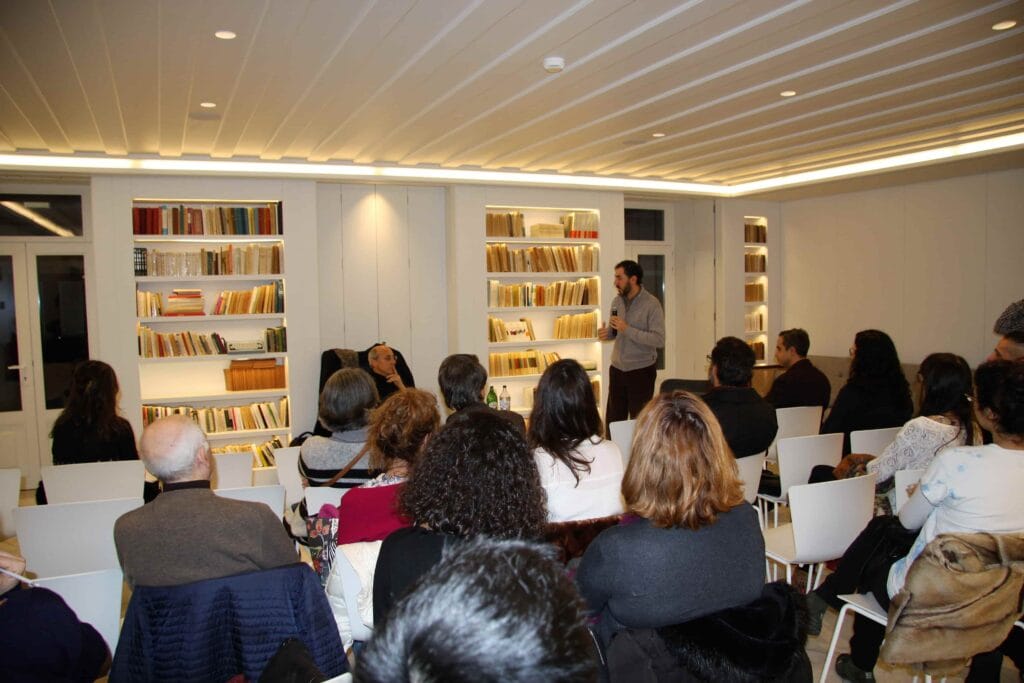
We have seen that, among the scientific activities you have organized at the University of Lisbon, is the conference “The journeys of ´ saudade´ (longing)”, which hosted several papers on Pessoa. Given your interest in the theme of the journey, and as the Lisbon Pessoa Hotel receives travellers from all over the world daily, it would be interesting to know how the journey emerges, both in Pessoa´s thought and in yours.
Paulo Borges: “The theme ´journey´ is one of the biggest motifs in universal literature and thought, and, in general, it can be said that the external journey leads to the interior journey, as having contact with other peoples, cultures and landscapes stimulates decentralization as well as the openness of minds and hearts. Pessoa´s outlook includes the inner journey, in which the subject, on discovering that his background is not a substantial nor fixed “I” but an emptiness, an open and indeterminate space, a “nothingness” or “no one”, an experience that can become everything, through a radical exercise in creative imagination, which leads to the creation of heteronomy. My thinking engages with that of Pessoa, even though it exceeds the psychological domain and looks to consider the journey as a bottomless foundation of reality experiencing itself in an ever-changing new way through multiples lives and phenomena.”
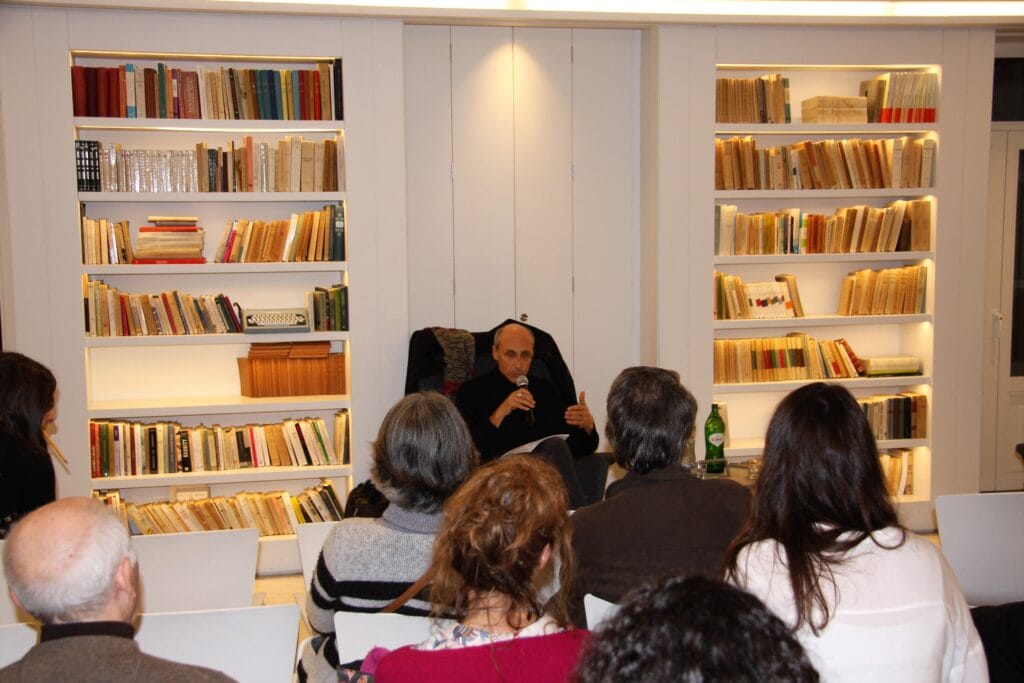
In the last decades, Fernando Pessoa has become a global phenomenon. His work is translated into dozens of languages, read by millions of people, both the arts and philosophy interpret his legacy, tourist-literary projects are created about him, such as the Lisboa Pessoa Hotel itself. How do you think Pessoa would see this colossal and multifaceted posthumous and universal fame if he could comment on it?
Paulo Borges: “On the one hand, he would see it as natural, on the other, with a lot of irony. This is because Pessoa, although he was aware of his literary genius and inexorable success early on – he envisioned himself as “Supra-Camões” and “the supreme poet of Europe of all times” at the age of 24 – in life he never gave into strategies to make himself famous, disregarding even being published, which caused him to have a very precarious financial life. Perhaps he did so because he saw life as a dream and an illusion.”
Interview by Fabrizio Boscaglia
_
Discover Lisboa & Pessoa, from Lisboa Pessoa Hotel, a themed boutique hotel inspired by Fernando Pessoa.

